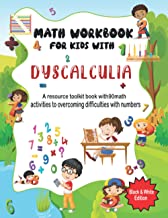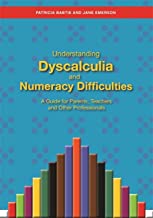Dyscalculia
Dyscalculia is a math learning disability that impairs an individual’s ability to learn number-related concepts, perform accurate math calculations, reason and problem solve, and perform other basic math skills. 1. Dyscalculia is sometimes called “number dyslexia” or “math dyslexia.”
Cluster Number:
Wiki Number: W071
Diagnosis: Dyscalculia (Math Abilities)
US Patients: 3-6%
World Patients:
Sex Ratio:
Age Onset:
Brain Area: intraparietal sulcus, frontal lobe, and left angular gyrus; difficulty with spatial awareness and memory
Symptoms: math abilities may stop at the 4th grade level, that may also be a developmental delay
Progression: Limitations in memory, counting, doing math problems, avoidance of careers where math or science is a component
Causes:
Medications: transcranial direct durrent stimulation of the left parietal (anode) and right parietal lobe (cathode)improved math for 2.
Therapies: Several computerized training programs are listed in the Wikipedia article followed by the article’s bibliography.
Youtube Video: How to Help a Child with Dyscalculia
Youtube Video:
What is Dyscalculia?
Amazon or Library Book:
Math Workbook for Kids
with Dyscalculia
Amazon or Library Book: Understanding Dyscalculia and Numeracy Difficulties
Click the book to link or buy from Amazon.
Click the book to link or buy from Amazon.


